Kathleen Pooler's Blog, page 9
December 9, 2019
Interview with Alison Sher on The Homecoming Retreat
Posted by Kathleen Pooler/@kathypooler with Alison Sher
I am very pleased to introduce you to Alison Sher. I first met Alison in 2014 when I attended a women’s writing conference where she was a speaker. Alison describes herself as a “visionary creative, business & editorial consultant”. Most recently, Alison reached out to me to tell me about The Homecoming Retreat when she saw that I had published a book about being the mother of an addicted son. I am thrilled that such a resource exists for addicted people and their families and wish I could have participated in such a program when my son was in the throes of his active drinking.
Welcome, Alison!
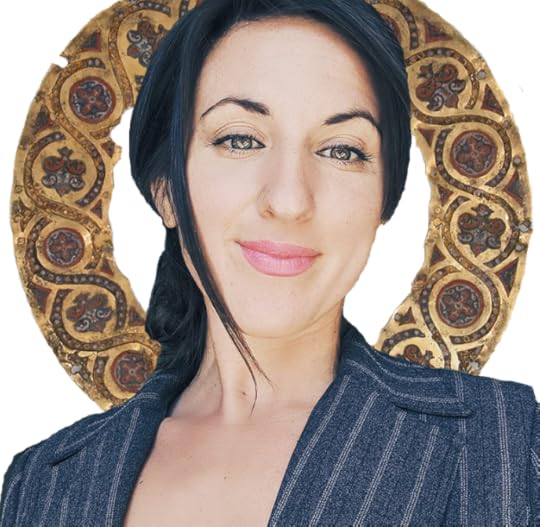 Visionary creative, business & editorial consultant Alison Sher
Visionary creative, business & editorial consultant Alison SherInterview with Alison Sher on The Homecoming Retreat
Having published a memoir about addiction and recovery, I am thrilled to see a retreat focused on recovery for addicts and their loved ones. Can you describe how this idea came to be?
Well Kathy, I’ve learned so much working with these recovery experts. It turns out addicts is not even a politically correct term to use anymore. Because addict assumes that one’s addictive disorder is a permanent part of their identity and it’s not. It doesn’t have to be and this is what inspired our gathering. To help people who are suffering realize that they can change, that this disorder can eventually become part of their past if they follow certain practices and understand the latest research that’s coming out about how we can cure this life threatening affliction. It’s a disorder. It’s not a disease.
Addiction is a multifaceted problem requiring a multifaceted response. I am impressed with the list to experts who are involved in this effort. How did you all find one another?
I teamed up with Andrea Morris who is a clinical specialist and trainer and has lots of connections in this field. Some of the people are her colleagues and some teachers that I personally admire and reached out to.
This Homecoming Retreat is a unique approach to addiction recovery. Can you describe your program and what you hope to accomplish.
We are hoping to teach people that trauma and the subsequent changes that are created in one’s brain are what most likely lies at the root of addictive patterns. We also want to show them how much the science has progressed over the last 15 years to prove this. We want to introduce them to the therapies that get to the root of this problem, so it wouldn’t take so long for them to find these life changing resources and very skilled practitioners. It takes the average person 10 years to find their way to this information. We wanted to give it to you in one weekend.
It has been established that addiction is a brain disease not a moral failing. This concept has been disputed and there are still some people who cling to the notion that if the addict only had the willpower, they could change their behavior. When my son was in the throes of active addiction, this brain disease theory was disputed. The people around me—counselors, family, friends—tried to be helpful but it only led to guilt and shame for me. I’m happy to see a neurologist on your panel. What are your thoughts on Dr. Michael Trayford’s work?
My personal opinion is that once we heal the underlying traumas and rewire the addicted brain, making healthy, moral decisions becomes a choice once again. Our free will is restored. However, until that happens, so many of us will stay controlled by our impulsive and self-destructive coping mechanisms to self-medicate our pain. You might be out of the denial phase and in some kind of treatment plan like the 12 steps seeking to live in a better way, but it’s so often not enough. People know better, but still act out addictive patterns because the action happens before there’s even a thought to control it. That’s why so many people say they are powerless over their addictions. And its why white knuckling your way through sobriety without that trauma resolution and brain rewiring is unsustainable for many. Dr. Trayford is an amazing supporter of ours and global activist in this cause. He brings that hard science component into the conversation and does so with a very sincere heart. He was named the functional neurologist of the year in 2017. We are lucky to have him presenting. He’s going to share with us case studies of how his protocols at Apex Brain Centers are helping clients restore their mind/body connection and heal their brain.
Addiction Recovery is a long hard journey. Relapse is common. How does your program address this?
Our program is highlighting material that really gets to the source of why this is such a cynical pattern for so many and how to truly break free once and for all. I think de-stigmatizing the condition is important, and moreover we have to cleanse ourselves on a cellular level of the toxic shame that causes people to self-sabatoge in addictive relapses. I think shame causes relapse more than anything. This idea that you’re unworthy of dignity, stability and a loving life experience. It’s also important to address the feelings of isolation that cause people to seek connection from a mind altering substance instead of those around them. We bring a peer support element to the retreat. Having allies in recovery can mean all the difference.
The Homecoming Retreat sounds like a groundbreaking event. I only wish I had access to such a program when I was going through my son’s active addiction. Do you have any preliminary data on how the program is being received?
We won’t know until it’s over, but really had an intuition that it was of great need. We hope to run it again in a different city in the US.
Is there anything else you’d like to say about the program?
I think it’s important for families to address this issue together. Addiction is created in the home. Many scientists now believe that childhood developmental and attachment trauma reside at the core of this affliction. There are also generational and ancestral traumas that recreate themselves through our lineages, and it explains why for some people this “core wounding” and hungry ghost we are born with stems so deep, and from memories we can’t even fully recall. When one member of the family starts doing the work to liberate themselves from this pain because it is manifesting in addiction, there is an opportunity to heal the whole family system. To me, “addicts” are mystics. And recovery almost always results in a spiritual awakening and a complete shift in identity.
 Photo Credit: www.goodnet.org
Photo Credit: www.goodnet.orgHere is the link to The Homecoming Retreat
Alison can be found at her website Alison Sher.com
Thank you Alison for all your work on such an important cause. I am fascinated by your line of thinking that addiction is not a disease but a disorder that can be healed by doing the underlying trauma work necessary to break free.This will help so many people find freedom and empowerment in their lives.
How about you? What is your perception about addiction? Do you have any questions for Alison?
We’d love to hear from you. Please join in the conversation below.
Monday, December 16:
Christmas Blessings, 2019

December 2, 2019
Tenth Blogaversary Reflections
Posted by Kathleen Pooler/@kathypooler
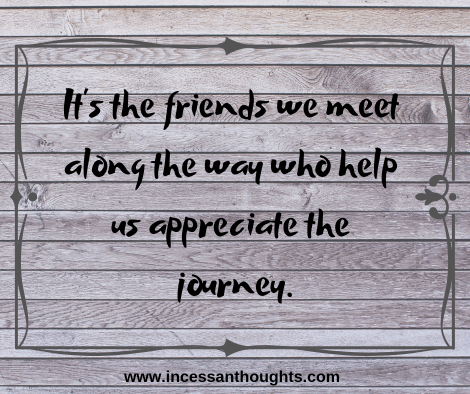
Tenth Blogaversary Reflections
When I set out to blog in December of 2009, I took a giant leap of faith. I didn’t have a clue how it all worked and I also was reluctant to tread in those unknown waters of social media. But I was adviced by people with a lot more experience than me to join.
As I wrote my first post on a free WordPress.com site, I felt the momentum build. With a sense of excitement and a bit of trepidation, I pressed publish. Where will this go? Where will it take me? Will anyone notice? How will I know what to say week after week?
And it gradually developed a life of its own as more people began to respond. Often times their comments served as an inspiration for my next post.
Now ten years later—a whole decade—I can say that it has opened many doors for me. I have met many wonderful people who have become friends, I have featured many memoir writers and their memoirs. As a result, we have all learned from one another.
Through the years, the blog has morphed into my main platform to “share hope one story at a time”. It has gone through several upgrades with another one coming soon.
Perhaps the greatest benefit is that it has provided me with the opportunity to find my voice and keep writing.
I often question myself about how much longer I will continue blogging. And every time I do, one of my loyal followers says something to inspire me to keep going.
These past years have seen me through the publication of two memoirs, many health setbacks and a wide array of guests. I am happy to have a platform that allows me to help promote other memoir writers.
I’m not sure what my next step will be—continue as is or morph into something else. I don’t plan on writing another memoir but remain open to whatever comes my way.
Right now I am full tilt with online marketing of Just the Way He Walked: A Mother’s Story of Healing and Hope. I will continue to feature guests.
That’s all I know as I am taking one day at a time.
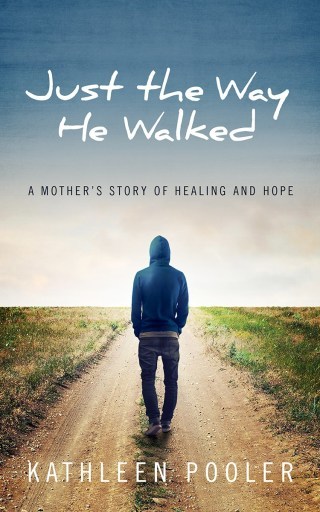 Amazon link
Amazon linkI want to thank my loyal followers for inspiring me every day to keep going. Together we will find our way.

How about you? For those who blog what has blogging done for you?
Next Week:
Monday , 12/9/19:
“The Homecoming Retreat by Andrea Morris and Alison Sher”

November 25, 2019
Writing with Hope and Encouragement by Memoirist Marilee Eaves
Posted by Kathleen Pooler/@kathypooler with Marilee Eaves
I think one of the main reasons I love reading memoirs is to experience a glimpse into another person’s story. I am thrilled to feature memoirist Marilee Eaves in this guest post on her memoir writing journey. It is in the sharing of our stories that we can make connections to one another. In laying bare the transformative nature of memoir, we can grow together.
My reviews of Marilee’s memoir, Singing Out Loud: A Memoir of an Ex-Mardi Gras Queen can be found on Amazon, Goodreads, LibraryThings and Riffle Books.
Welcome, Marilee!
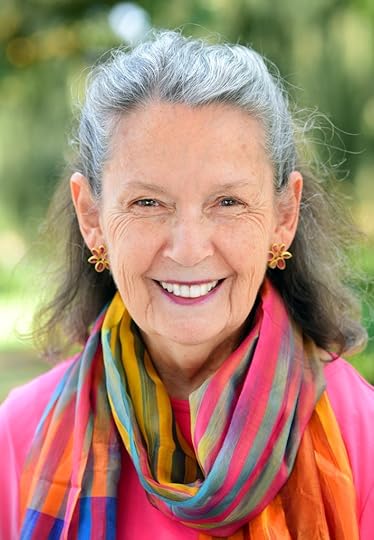 Memoirist Marilee Eaves
Memoirist Marilee EavesWriting with Hope and Encouragement
Writing my stories and listening to others’ stories gives me an explosion of hope!
Allowing myself to release stories out of my body one after another is a powerful elixir for me. This is healing and inspiring activity, and triggers behavior that often gives me direction.
 Photo Credit: Pixabay Free Image
Photo Credit: Pixabay Free ImageWriting from a New Sense of Self
For many years I wouldn’t write down any personal thoughts except in journals and letters. I didn’t like to read aloud in class or even read aloud minutes in a garden club meeting. I thought my thinking was insignificant and my voice was small. All that changed one weekend while on an EpiscopaI women’s retreat. There, in group settings using exercises created by the retreat leaders, I embraced the concept that love was pouring into me continually, nourishing me and rendering me whole, and I began to see myself differently. I felt more hopeful. I began to embrace myself.
The Moontime Sisters
When I moved to the Northwest from New Orleans, I connected with a group of women who practice Reiki as I do. We called ourselves The Moontime Sisters, and I grew into firmer ground in my concept of loving myself. In a sharing circle with the Moontime, I read aloud fledgling stories – “Attic Treasure”, “Queen of the Ball,” “Ruth,” “Disaster Zone,” ”Biloxi Summers,” “The Boxer,” “Queen of the Night’ – that metamorphosed into chapters in my book.
Lo and behold, I received feedback from the Moontime that nudged me into affirming that I have something to say and a unique way to do it, writing and reading aloud to a group. More hope! I think it helped that I was the only Southerner in the group and had a different accent. And that I was writing about growing up in a Mardi Gras city with exotic and sometimes bizarre customs that spark curiosity.
I engaged further in the process of writing my stories. My book, Singing Out Loud: A Memoir of an Ex-Mardi-Gras Queen—completed after ten years—brought forth the deep emotions I was tapping into. With The Moontime Sisters’ mindful attention and listening to my stories, I felt seen, acknowledged, made whole and empowered to do more and continue to increase my creativity. HOPE! I followed up the readings in circle and initiated teleconferences where I continued to read stories to the Moontime. I was diving into the stuff of hope! And filled with gratitude for the certainty and groundedness that allowed me the space to create work that might bring forth hope and encouragement to others.
Between my book that comes out this month and the stories and essays I write, I am a hopeful writer indeed. I look forward to opening up more heart space for readers to expand their confidence and increase their sense of wholeness.

Please comment below about your own writing and how finding your voice has expanded your sense of self. I look forward to hearing from you.
About the Author:
Marilee Eaves is an author, social worker, Reiki practitioner, labyrinth facilitator, mental health advocate and native New Orleanian.
Visit Marilee at www.marileeeaves.com
About the Book:
Born during World War II, Marilee Eaves has long struggled to fit into the New Orleans elite—secret Mardi Gras societies that ruled the city—into which she was born. Then, as a student at Wellesley, she’s hospitalized at McLean psychiatric hospital, where she begins to realize how much of herself she’s sacrificed to blend into and be fully accepted by the exclusive and exclusionary white Uptown New Orleans culture to which she supposedly belongs.
In Singing Out Loud, Eaves tells of her journey to stand on her own two feet—to find a way to be grounded and evolved in the midst of that culture. Along the way, she wrestles with bipolar disorder, alcoholism, and the effects of her bad (heartbreaking, and sometimes hilarious) choices. Raw and funny, this book offers hope and encouragement to those willing to be vulnerable, address their issues, and laugh at themself in order to embrace who they truly are.

This Week:
November 2019 Newsletter: Updates, Memoir Musings and Max Moments
” Tips for Getting Back on Track”
Next Week:
Monday, 12/02/19:
“My Tenth Blogaversary”

Writing with Hope and Encouragement by Memoirist Marilea Eaves
Posted by Kathleen Pooler/@kathypooler with Marilea Eaves
I think one of the main reasons I love reading memoirs is to experience a glimpse into another person’s story. I am thrilled to feature memoirist Marilea Eaves in this guest post on her memoir writing journey. It is in the sharing of our stories that we can make connections to one another. In laying bare the transformative nature of memoir, we can grow together.
My reviews of Marilea’s memoir, Singing Out Loud: A Memoir of an Ex-Mardi Gras Queen can be found on Amazon, Goodreads, LibraryThings and Riffle Books.
Welcome, Marilea!
 Memoirist Marilea Eaves
Memoirist Marilea EavesWriting with Hope and Encouragement
Writing my stories and listening to others’ stories gives me an explosion of hope!
Allowing myself to release stories out of my body one after another is a powerful elixir for me. This is healing and inspiring activity, and triggers behavior that often gives me direction.
 Photo Credit: Pixabay Free Image
Photo Credit: Pixabay Free ImageWriting from a New Sense of Self
For many years I wouldn’t write down any personal thoughts except in journals and letters. I didn’t like to read aloud in class or even read aloud minutes in a garden club meeting. I thought my thinking was insignificant and my voice was small. All that changed one weekend while on an EpiscopaI women’s retreat. There, in group settings using exercises created by the retreat leaders, I embraced the concept that love was pouring into me continually, nourishing me and rendering me whole, and I began to see myself differently. I felt more hopeful. I began to embrace myself.
The Moontime Sisters
When I moved to the Northwest from New Orleans, I connected with a group of women who practice Reiki as I do. We called ourselves The Moontime Sisters, and I grew into firmer ground in my concept of loving myself. In a sharing circle with the Moontime, I read aloud fledgling stories – “Attic Treasure”, “Queen of the Ball,” “Ruth,” “Disaster Zone,” ”Biloxi Summers,” “The Boxer,” “Queen of the Night’ – that metamorphosed into chapters in my book.
Lo and behold, I received feedback from the Moontime that nudged me into affirming that I have something to say and a unique way to do it, writing and reading aloud to a group. More hope! I think it helped that I was the only Southerner in the group and had a different accent. And that I was writing about growing up in a Mardi Gras city with exotic and sometimes bizarre customs that spark curiosity.
I engaged further in the process of writing my stories. My book, Singing Out Loud: A Memoir of an Ex-Mardi-Gras Queen—completed after ten years—brought forth the deep emotions I was tapping into. With The Moontime Sisters’ mindful attention and listening to my stories, I felt seen, acknowledged, made whole and empowered to do more and continue to increase my creativity. HOPE! I followed up the readings in circle and initiated teleconferences where I continued to read stories to the Moontime. I was diving into the stuff of hope! And filled with gratitude for the certainty and groundedness that allowed me the space to create work that might bring forth hope and encouragement to others.
Between my book that comes out this month and the stories and essays I write, I am a hopeful writer indeed. I look forward to opening up more heart space for readers to expand their confidence and increase their sense of wholeness.

Please comment below about your own writing and how finding your voice has expanded your sense of self. I look forward to hearing from you.
About the Author:
Marilee Eaves is an author, social worker, Reiki practitioner, labyrinth facilitator, mental health advocate and native New Orleanian.
Visit Marilee at www.marileeeaves.com
About the Book:
Born during World War II, Marilee Eaves has long struggled to fit into the New Orleans elite—secret Mardi Gras societies that ruled the city—into which she was born. Then, as a student at Wellesley, she’s hospitalized at McLean psychiatric hospital, where she begins to realize how much of herself she’s sacrificed to blend into and be fully accepted by the exclusive and exclusionary white Uptown New Orleans culture to which she supposedly belongs.
In Singing Out Loud, Eaves tells of her journey to stand on her own two feet—to find a way to be grounded and evolved in the midst of that culture. Along the way, she wrestles with bipolar disorder, alcoholism, and the effects of her bad (heartbreaking, and sometimes hilarious) choices. Raw and funny, this book offers hope and encouragement to those willing to be vulnerable, address their issues, and laugh at themself in order to embrace who they truly are.

This Week:
November 2019 Newsletter: Updates, Memoir Musings and Max Moments
” Tips for Getting Back on Track”
Next Week:
Monday, 12/02/19:
“My Tenth Blogaversary”

November 18, 2019
The Best Laid Plans…
Posted by Kathleen Pooler/@kathypooler
“Carry with you maps and string, flashlights, friends who make you sing, and stars to help you find your place, music, hope, and amazing grace.” ~ Mary Chapin Carpenter
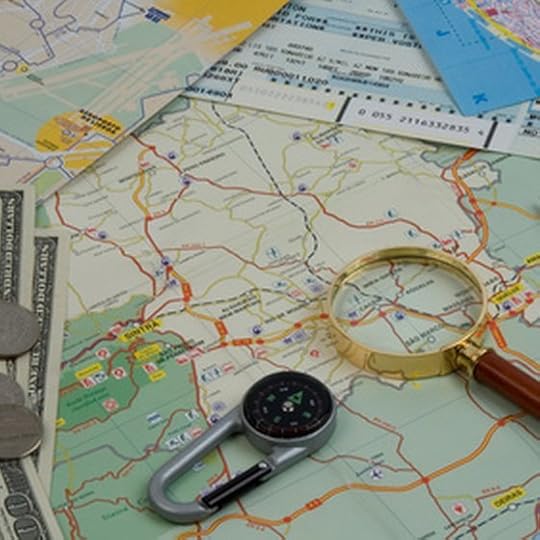
The Best Laid Plans...
It’s a good thing I decided to take a break from blogging when I did. Several days into my self-imposed hiatus to tend to some medical procedures, I experienced a major setback which necessitated a two-week-long inpatient hospitalization and more medical procedures, namely temporary hemodialysis via a catheter in my neck. I won’t bore you with the details but will let you know that I was derailed from my normal activities.
All life plans were put on hold.
Meanwhile, life, as it often does, went on. Bills still had to be paid, our home went on the market and my completed memoir lingered in cyberspace ready to be sent out into the world.
 Photo Credit: social entrepreneurs.com
Photo Credit: social entrepreneurs.com
So sometimes, we have to give ourselves permission to stop whatever it was we were doing to tend to priority health issues.
I am blessed with a beautiful family, an excellent medical team and treatment options that give me hope that this too shall pass.
Until I am home again and back to my usual daily routine, I will continue to stay in touch when I can and will feature guest authors on my blog. Next week, 11/25/19, Marilea Eaves will discuss her new memoir, Singing Out Loud.
I appreciate your patience and loyal following and look forward to getting back on track again.

Next Week:
Monday, November 25, 2019:
“Writing with Hope and Encouragement by Memoirist Marilea Eaves.”
Marilea is the author of Singing Out Loud, a provocative and engaging memoir about her Mardi Gras experience.
November 2019 Monthly Newsletter: Updates, Memoir Musings and Max Moments:
“Tips for Getting Back on Track”

November 11, 2019
Why We Write Memoir by Charlene Jones
Posted by Kathleen Pooler/@KathyPooler with Charlene Jones/@CharleneJones18
“One day you will tell your story of how you’ve overcome what you’re going through now, and it will become part of someone else’s survival guide.”
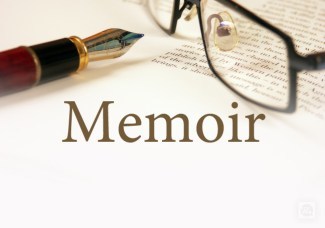
Please join me in welcoming my dear friend and memoir colleague, Charlene Jones who will explore the reasons we write and read memoir. Charlene has generously featured many of us fellow memoirists in podcast interviews on her Soul Sciences website to help us all promote our memoirs. Now it’s her turn to be featured in this guest post on her own memoir writing experience. I hope you enjoy her valuable memoir writing tips as much as I have.
Welcome, Charlene!
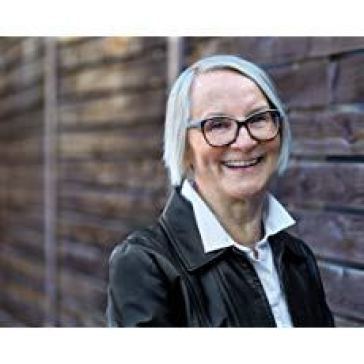 Memoirist Charlene Diane Jones
Memoirist Charlene Diane JonesWhy We Write Memoir
The above quote appeared on my FB thread. I asked the person if these were their words but heard nothing back. Yet this quote speaks to what memoir creates—a vital enhancement of our own lives.
Memoir is story carefully unwrapped within time and space. It reveals how one person lived through their suffering. Its importance lies beyond the exercise of imagination required with fiction. Memoir tells us what did happen.
As readers, we imagine partaking of the memoirist’s life journey.
Imagine. Consider what neuroscientist Alvaro Pascual Leone proved in his elegant experiments with imagination. Pascual Leone, Chief of the Beth Israel Deaconess Medical Centre part of Harvard Medical School used a transcranial magnetic stimulation machine to mark the neuronal pathways of novice piano players. Here’s what happened.
Pascual Leone divided the group into two parts, one part sitting at a physical piano, learning to play a particular piece of music. The second group imagined sitting at an imaginary piano and imagined their fingers playing the exact same piece of music. Results demonstrated those who had only imagined playing were proficient to about 2/3 the extent of those who played physically. (The Brain That Changes Itself by Norman Doidge.)
Clearly memoir provides us with an imaginary practice session at the emotional and behavioral scales required by life. Although fiction does the same it responds to the concept of imagination alone. No one sat at the piano, so to speak and practiced. It is all imagination and may be dismissed or further imagined as such.
With memoir we exercise our imagination knowing all the while the events took place in time and space. From Ulysses through Confessions by Saint Augustine or The Book of Marjorie Kempe (1436 or so) we read about the lives of others. And if you have any doubt about the power of the tales told within those books consider how Saint Augustine’s work has helped shape Western civilization.
One of the favorite stories we tell in our time is that of our collective ancestors, sitting by a fire at night. We imagine them regaling each other with stories of their heroic feats, of their trials and triumphs as others listen, nod their heads. Why?
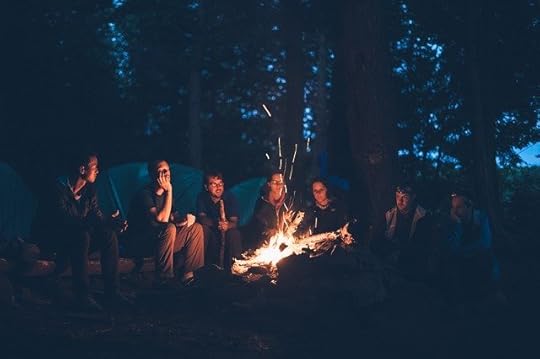 Photo Credit: Pixabay Free Image “Storytelling around a campfire”
Photo Credit: Pixabay Free Image “Storytelling around a campfire”The power of listening to or reading about lives lived by elders resonates within our cells. We recognize how they made their way against troubles, defeated struggles, stepped around problems or ran through them. This recognition provides each of us with a sense of increased stability and belonging. We begin to see our own struggles are not so different. Or they are very different, but that someone else overcame something similar or even more harsh.
From reading the trails and paths of those who have gone before we learn how to overcome suffering. We learn we are not singled out by life to experience tragedy but that suffering arrives in every life. In this our suffering evidences our communion with life itself. We suffer because we are alive.
For the writer, memoir is a release, a further examination and an offering. Every one of the many memoirists I’ve interviewed over the years say the same thing: they wish to help others.
My memoir writing began within a year of my return from being held hostage for three days by two armed criminals over 50 years ago. That first version had none of the horrific events that later spilled from within but was as careful a notation as I was able to make at that time.
Through several decades of body work, breath work, dream work, meditation, dance and singing I accomplished the laborious task of sieving all the bad memories. I learned to listen as my body spoke, releasing her unbearable burden of memory. Then I learned to release those memories, so they stay in the past.
I so prize her, that young me, with her courage and determination. Her life, my life had fallen already into tiny pieces. As I grew able to write all the details, including the very difficult parts, I felt the young one within me finally sigh and let go. Her story, her truth, helps create the power of my life, now.
Writing and finishing this book My Impossible Life demonstrates the psychic container in which I now hold, and have released, my suffering.
Memoir delivers this power: to put boundaries about the most difficult parts of life in the past and in that to make clear the joy and contentment, the genuine gifts of today’s life.
This does not guarantee no more problems. It does help us focus on the positive love of today. And that is a large gift.
Book Synopsis
Initiation in a Tibetan temple in the north of India with Chogya Trizen and the Sakya? Sailing the Gulf of Mexico in tornado season? Meditating in silence for three months in New Zealand? Wherever Ms. Jones sets foot on the planet more adventures spring to life. Her adventures are not simply outer world. Thrust about by forces that provide her with Angelic interventions and visionary experiences, Jones continues to do the only thing she knows how: put one foot in front of the other every day while focusing on her main quest, healing. She knows despite outer appearances she is living a half-life with her senses bound and numbed. She knows she is one move away from total psychic collapse. What she does not know is why? What happened in her past that pushed her beyond her limits? Using neuroscience, descriptions of her night dreams and their intelligence, and recounting her experiences in deep Tibetan Buddhist meditation, Ms. Jones’ offers readers a glimpse into healing, even when life has been pulled in half, even if what is left is what Jones’ calls My Impossible Life.
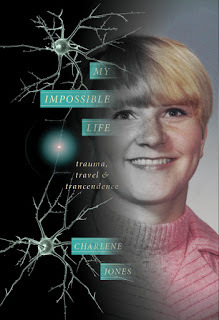
About the Author:
Charlene lived through a boisterous, chaotic, brutal and loving family of origin, where love fell from mother’s hands along with a leather whip, where picnics and punishments dotted the psychic landscape, and from which she eventually ran.
Only to get into a car driven by two armed criminals who held her hostage for three days.
When she returned a brief stint with drugs and the expected outrageous behaviour known as PTSD did not prevent her leaving again, this time on the whim of a vision of her contentious teacher, recognized by the Tibetans for his meditation achievements if not his humanitarianism.
She spent time twirling beads in a Tibetan temple in the North of India, drank chang with Mongol men, flew to New Zealand and completed a three month intensive meditation retreat.
Her continuing adventures in a life that refused to settle down, to take it easy, to walk the way others walked have resulted also in her books, Medicine Buddha/Medicine Mind and The Stain to be followed soon by her memoir: My Impossible Life.
She is a performance poet with many poems published internationally, a podcaster at www.soulsciences.com, a meditation teacher at Stouffville Yoga Life through which she also co-leads retreats, a grandmother, a partner, and a soul guide for the life destroyed.
M.Ed/M.A
Self-published: The Stain (fiction)
Medicine Buddha/Medicine Mind
Bliss Pig (with Linda Stitt)
Performance Poet, Meditation Teacher, Soul Guide for Distressed People
Links
LinkedIn:https://www.linkedin.com/in/charlene-jones-65864046/
Facebook: https://www.facebook.com/charlene.jones.104
Website: https://www.soulsciences.net
How about you? Why do you write memoir? or read memoir?
We’d love to hear from you. Please join in the conversation below~
Charlene has graciously agreed to gift a copy of her memoir, My Impossible Life: trauma,travel. transcendence to a commenter whose name will be selected in a random drawing.
Next Week:
Monday, November 18, 2019:
“The Best Laid Plans…”

October 21, 2019
Where I Live: A WOW Blog Tour with R. Douglas Clark
Posted by Kathleen Pooler/ @kathypooler with R. Douglas Clark.
Welcome to R, Douglas Clark’s WOW Blog Tour for his new Sci-Fi novel , Welcome to Maravilla. He will discuss, “Where I Live ” in this guest post.
Welcome, R, Douglas!
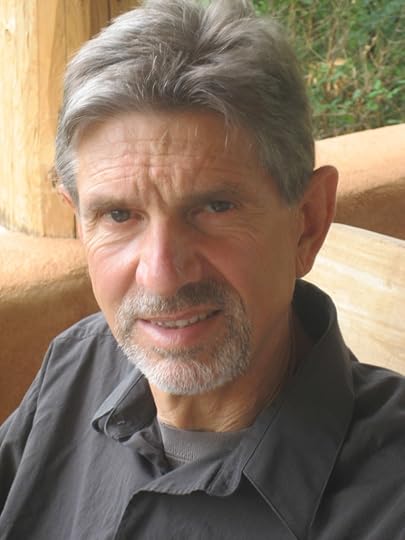 Author R. Douglas Clark
Author R. Douglas ClarkWhere I Live
The village of Chimayó in northern New Mexico is a landscape painting, a crimson ristra, an arroyo filled with trash, a vintage car, a quality of light, a white cross on a red hill, a discarded syringe, a memory, a vision. Chimayó is the dusty roads, the rusted cars half-buried in the riverbank, the adobes and the doublewides, the snarling dogs, the raps and rancheras, the fields of chile, the abandoned apple orchards, the bright plastic flowers decorating the cemeteries and descansos, the weaving shops where tourists stop on their way to the humble Catholic church where pilgrims pray in front of a violent cross. This is where I live and write.
Chimayó’s older families have lived here for generations, ever since the Spanish came up from Mexico. All the others, the Anglos and Mexicans, are newcomers who ambled into the valley over the past fifty or so years, ignorant of its curses and charms. The aboriginal inhabitants, the Indians, live nearby on the reservations but not in Chimayó itself, except in the bones of Chimayosos and in their blood.
Unlike the postcard villages of New Mexico, Chimayó has no central plaza. Its shops and houses are scattered about like the first fat drops of rain on a dry day. Forget the fantasy of a leafy plaza where people gather to talk and stroll about; let go of the desire to linger on a warm summer evening while a band plays canciones. This is not Chimayó.
Chimayó is not a movie set. It is not an illusion but an undisguised reality. The past, with all its deeds and misdeeds, its knowledge and secrets, burns through to the present. The dead live on in stories and memories. The living dance on the graves of their ancestors and dream of those yet to come.
Book Summary

The tiny hamlet of Maravilla, New Mexico is not immune to modern-day problems. But the citizens of Maravilla have their own special problems, as well:
A developer wants to build a Christian-themed amusement park next to Maravilla’s historic church.
The county line runs right through the town, splitting it in two.
And the government is threatening to close their post office!
Into this muddle steps Jake Epstein, a young writer from the big city. Jake is seeking peace and quiet to finish his current project: a science fiction story in which adventuress Tai-Keiko must deliver the secret formula for Zeton-9—with the evil Krossarians in hot pursuit.
But then reality and science fiction converge—and Tai-Keiko finds herself in present-day Maravilla, face to face with a gobsmacked Jake.
Join Jake on this comic run along the dusty roads of Maravilla, and find out who won the fight between Father Ignatius and the heathen pig farmer. How a basketball game changed the fate of the town. And was that white flash in the sky a UFO?
Print Length: 195 Pages
Genre: Science Fiction
Publisher: Beeline Press (June 19, 2019)
ISBN-10: 1645400646
ISBN-13: 978-1645400646
Welcome to Maravilla is now available to purchase on Amazon.com , Barnes and Noble , and IndieBound.
About the Author
R. Douglas Clark was born in Vermont, grew up in Colorado, attended college in Chicago, and received a Master’s degree in music from Brown University. Seeing no future for himself in academia, he spent a year in the Oregon woods, living in a primitive cabin, writing music reviews and cultural commentary for magazines and newspapers. Next stop, Eugene, Oregon where he spent 20 damp years as a bootstrap businessman, father and musician. On a vacation trip, he and his wife, Shelley, fell in love with sunny northern New Mexico and subsequently moved there. After four years running Boys and Girls Clubs in Chimayó and Abiquiú–and another four, running a U-pick raspberry farm–he retired to write fiction full time.
Find R. Douglas online: https://www.rdouglasclark.com/

October 14, 2019
Time For a Break
Posted by Kathleen Pooler/@kathypooler
“Almost anything will work again, if you unplug it, including you.”~ Anne Lamott
 Photo Credit: daily caring .com
Photo Credit: daily caring .comWell, we did it. We moved from our four-bedroom home into a two-bedroom apartment without any major hitches. We are busy settling our new home.
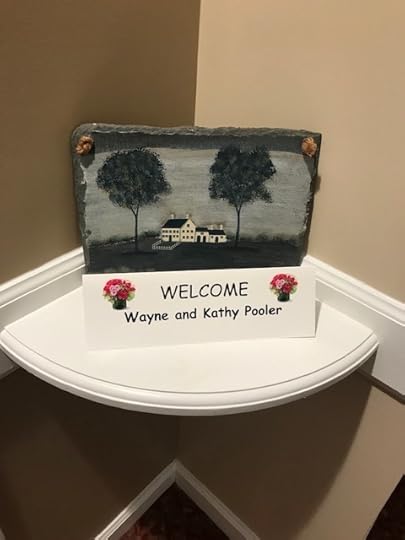
I have to admit, it does feel a little surreal but my overall feeling is one of relief and a sense that, despite the disruption, it feels right. I have several medical procedures scheduled, including a lap cholecystectomy on 10/30.
I need to take a blogging break until mid-November.
Next Monday, on 10/21, I have a regularly scheduled Wow Blog Tour with R. Douglas Clark, author of Welcome to Maravilla. He will do a guest post, ” Where I Live”.
On 11/11, Memoirist Charlene Jones, author of a debut memoir, My Impossible Life will discuss “Why We Write Memoir”.
In the midst of all this, I am finalizing my second memoir, Just the Way He Walked: A Mother’s Story of Hope and Healing.
Here’s a little preview:
Kathleen Pooler left her husband Ed due to his heavy drinking when her children Leigh Ann and Brian were three-years -old and eighteen months, thinking that she was protecting her children from the ravages of alcohol abuse. However, when addiction claims her youngest child, Brian, she realizes that the cycle of alcohol abuse is being repeated within her family.
How does a young mother deal with facing not one but two formidable enemies?
Follow Kathy’s journey through her son’s addiction and experience for yourself the insidious nature of addiction. Kathy moves through denial and desperation as she struggles to understand and gain some control over Brian’s downward spiral.
When cancer strikes she is forced to focus on herself and let go of her obsession with Brian’s addiction.
But how does a mother let go of her child? Does letting go have to mean giving up?
Kathy hopes that her story will inspire others to never give up hope when faced with an addicted child.
No matter how far down into the abyss you may go, there’s always a chance for recovery.
Just the Way He Walked: A Mother’s Story of Hope and Healing offers readers insight into the impact of addiction on families and how they can learn from her story.
“I want to offer hope and guidance for my readers who need to find their own way through the challenges of loving an addicted child.”
Coming soon:
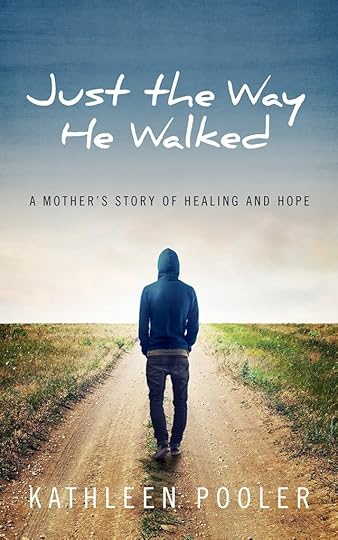
I’ll be back to a regular blogging/newletter schedule on 11/18.
Until then, be well!

October 7, 2019
Searching for Family and Traditions at the French Table by Memoirist Carole Bumpus
Posted by Kathleen Pooler/@kathypooler with Carole Bumpus/@CaroleBumpus
“Life is worth living, and if you can recognize the value of each pleasurable moment, you are truly a winner.” ~ A French Host toasts his dinner guests
 Photo Credit: Pixabay Free Image
Photo Credit: Pixabay Free ImageI am pleased to introduce you to memoirist Carol Bumpus who has traveled throughout France and immersed herself in the French culture. Today she will explain how she approached French families and experienced their culture first hand–around their tables. These travels led to a fascinating memoir, Searching for Family and Traditions at the French Table: Book One in Savoring the Olde Ways Series.
Welcome, Carole!
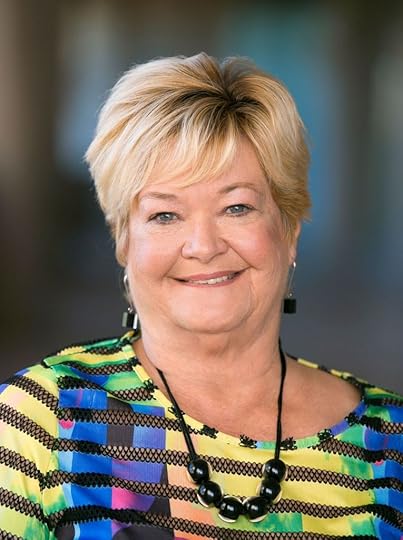 Memoirist Carole Bumpus
Memoirist Carole BumpusSearching for Family and Traditions at the French Table
Have you ever strolled down a cobblestone street in a foreign village, passed an open window, and heard laughter flowing out to greet you? Have you ever stopped to listen to the banter and wondered what it would be like to live there? In that house? That village? And oooooh—what is that wonderful aroma? What could they possibly be having for dinner?
My book series, Savoring the Olde Ways, is a compilation of stories and recipes I had the good fortune to gather during interviews and conversations with families as I traveled throughout France and Italy. Part culinary memoir and part travelogue, these books present the personal experiences of three generations of families, as told to me inside their homes along those very streets.
As a retired family therapist, I was curious to know what glue held European families together. Through my interviews, I discovered that by focusing on a family’s favorite foods, I could gain a better understanding of what was important in their lives. And, as it turned out, the simple answer was their connection to each other. But, by delving deeper into their family stories, it became apparent that it was due to their history involving world wars. When war stakes its claim on your doorstep, lives are permanently changed—and for generations to come. I learned that sometimes through tragic loss, families could come to value one another more deeply.
So, you ask, what surefire method did I use to open this topic of conversation? First, I went light. I asked my hosts to tell me about the treasured dishes their mothers prepared for them as children. Did they carry the same recipes into marriage? Did they continue the same holiday traditions with their own families? Was the dinner table the centerpiece for family gatherings?
But before I launched into this inquiry, I had to prepare myself. First, I settled into a comfortable chair or snugged up to the host’s kitchen table. I had pen and paper in hand, along with my trusty voice recorder, for you see, I needed to be ready to capture their most immediate response. And then I asked my first questions. Instantaneously, the fondest of memories rose to the surface—moments of delight from holidays past, recollections of favorite family dishes, and reminiscences of cherished family stories immediately came bubbling forth. And before I could blink, my host would leap up and rush to the kitchen counter—in search of a copy of their favorite recipe from their recipe box.
“Voici” (French); “Ecco qui” (Italian); “Here it is!” I heard them proclaim, as they made a beeline back to my side. And there, clutched in hand, was their favorite recipe card, all smudged with past efforts and spattered with determination and conviction. And then for my benefit, because I’m not so adept in foreign languages, arms began to fly with mixing motions sweeping the air as the preparation of a favorite recipe was reenacted. It was within the recounting of a recipe that memories would begin to unfold, and hardships or wartime challenges were fluffed off as something they all experienced, but certainly had changed how they held their children closer and valued even the smallest meals they put on their tables—three generations later.
How was I able to handle interviews not knowing the language? You’re so correct to ask. In order to capture every nuance of each recitation, I traveled with a friend who was a translator. (Lord knows what I would have done without her!) You see, on my own it would have been impossible to capture my host’s recipe much less the cooking methods or lists of ingredients. And, most of all, I would have missed the poignancy of their innermost stories. For the friendships I developed with those I traveled, I am deeply grateful. These stories would never have been shared and a peek inside those hearts and homes would never have been realized.
As an ‘amuse bouche’ or little morsel from the book, on the first evening of my tour, I was taught my first French cooking class in a private home. Completing the class, my host reached for the champagne and made the first of many toasts: “Life is worth living, and if you can recognize the value of each pleasurable moment, you are truly a winner.” Indeed, we were blessed.
My series of culinary travel books is called Savoring the Olde Ways. Book One is called Searching for Family and Traditions at the French Table. It is the first half of a culinary adventure I took with my dear French friend, Josiane Selvage—from Paris, in the Île-de-France, through the Champagne, Alsatian and Lorraine Regions then back to Paris. The next book is Book Two in the series and has the same title. It is the completion of this adventure beginning in Paris, heading north into Nord-Pas-de-Calais, Normandy, Brittany, Loire and completing the tour in the Auvergne. The third book in the series, takes you to Italy: Searching for Family and Traditions at the Italian Table. The foods, recipes and traditions sampled are culled from all these regions, along with the delightful stories I was told en route.
AUTHOR’S BIO:
A retired family therapist, CAROLE BUMPUS began writing about food and travel when she stumbled upon the amazing stories of women and war and their relationship to food in France. Her historical novel, A Cup of Redemption, was published October 2014, and her unique companion cookbook, Recipes for Redemption: A Companion Cookbook to A Cup of Redemption, was released August 2015. On August 27, 2019, the first book of her new Savoring the Olde Ways series, called Searching for Family and Tradition at the French Table, was the third of her books published by She Writes Press.
She has been an active member in the California Writers Club since 2008 and has served on its local board since 2010, as well as the Regional and State Boards since 2012. And through the CWC, shehas had three short stories published in their San Francisco Peninsula Branch Fault Zone anthologies: Words from the Edge, Stepping up to the Edge, and Over the Edge. She has had many articles published throughout France and the U.S. regarding WWII veterans and she continues to support keeping this history alive.
Contact information:
Website: www.carolebumpus.com
Email: Carole@CaroleBumpus.com
Facebook: www.facebook.com/carolejbumpus
Instagram: carole.bumpus
Book Synopsis:
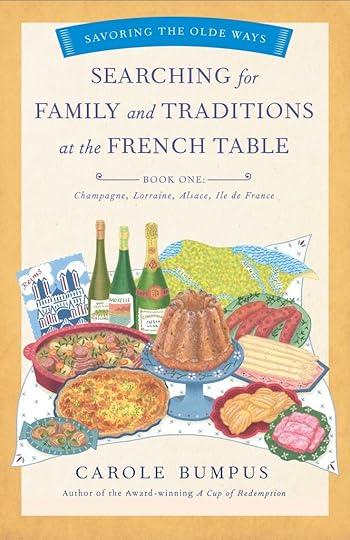
Part culinary memoir and part travelogue, Carole Bumpus gathered this compilation of intimate interviews, conversations, stories, and traditional family recipes (cuisine pauvre) in the kitchens of French families as she traveled throughout the countryside. Travel with her through Champagne caves/wineries and historic cathedrals, local farmers’ markets, ancient potters’ guilds, and restaurant kitchens with wood-fire ovens. Learn how to make homemade Spinach-stuffed Tortellini with Bolognaise Sauce from the Champagne region, Crêpes and Watercress-stuffed Ravioli from the Lorraine, and Baekeofe and Kugelhopf from the Alsace. “Go blind” from the family stock of Eau de Vie liqueur and be treated to tales of foraging for snails for the infamous and now extinct Escargots Festival. And, on a somber note, listen to accounts of families forced from their communities during the German occupation of WWII in the Alsace and Lorraine, only to continue to struggle for survival after finally making their way home.
This book is a compilation of stories about making ends meet; about people being grateful for all they had, even when they had almost nothing; about the sharing of family jokes and laughter; and about family trials and triumphs. This book is about people savoring the life they have been give
Barnes & Noble: https://www.barnesandnoble.com/w/searching-for-family-and-traditions-at-the-french-table-book-one-carole-bumpus/1129474979?ean=9781631525490#/
Indie Bound: https://www.indiebound.org/book/9781631525490
Thank you, Carole for sharing your travels and rich culinary experiences with us. Your stories bring us right around those kitchen tables to experience the traditions, history and delicious recipes of these families.
How about you ? Have you traveled and experienced another culture? What family recipes do you treasure and what memories do they evoke?
We’d love to hear from you. Please join in the conversation below~
Next Week:
Monday, 10/14/19: TBA

Searching for Family and Traditions at the French Table by Memoirist Carol Bumpus
Posted by Kathleen Pooler/@kathypooler with Carole Bumpus/@CaroleBumpus
“Life is worth living, and if you can recognize the value of each pleasurable moment, you are truly a winner.” ~ A French Host toasts his dinner guests
 Photo Credit: Pixabay Free Image
Photo Credit: Pixabay Free ImageI am pleased to introduce you to memoirist Carol Bumpus who has traveled throughout France and immersed herself in the French culture. Today she will explain how she approached French families and experienced their culture first hand–around their tables. These travels led to a fascinating memoir, Searching for Family and Traditions at the French Table: Book One in Savoring the Olde Ways Series.
Welcome, Carole!
 Memoirist Carole Bumpus
Memoirist Carole BumpusSearching for Family and Traditions at the French Table
Have you ever strolled down a cobblestone street in a foreign village, passed an open window, and heard laughter flowing out to greet you? Have you ever stopped to listen to the banter and wondered what it would be like to live there? In that house? That village? And oooooh—what is that wonderful aroma? What could they possibly be having for dinner?
My book series, Savoring the Olde Ways, is a compilation of stories and recipes I had the good fortune to gather during interviews and conversations with families as I traveled throughout France and Italy. Part culinary memoir and part travelogue, these books present the personal experiences of three generations of families, as told to me inside their homes along those very streets.
As a retired family therapist, I was curious to know what glue held European families together. Through my interviews, I discovered that by focusing on a family’s favorite foods, I could gain a better understanding of what was important in their lives. And, as it turned out, the simple answer was their connection to each other. But, by delving deeper into their family stories, it became apparent that it was due to their history involving world wars. When war stakes its claim on your doorstep, lives are permanently changed—and for generations to come. I learned that sometimes through tragic loss, families could come to value one another more deeply.
So, you ask, what surefire method did I use to open this topic of conversation? First, I went light. I asked my hosts to tell me about the treasured dishes their mothers prepared for them as children. Did they carry the same recipes into marriage? Did they continue the same holiday traditions with their own families? Was the dinner table the centerpiece for family gatherings?
But before I launched into this inquiry, I had to prepare myself. First, I settled into a comfortable chair or snugged up to the host’s kitchen table. I had pen and paper in hand, along with my trusty voice recorder, for you see, I needed to be ready to capture their most immediate response. And then I asked my first questions. Instantaneously, the fondest of memories rose to the surface—moments of delight from holidays past, recollections of favorite family dishes, and reminiscences of cherished family stories immediately came bubbling forth. And before I could blink, my host would leap up and rush to the kitchen counter—in search of a copy of their favorite recipe from their recipe box.
“Voici” (French); “Ecco qui” (Italian); “Here it is!” I heard them proclaim, as they made a beeline back to my side. And there, clutched in hand, was their favorite recipe card, all smudged with past efforts and spattered with determination and conviction. And then for my benefit, because I’m not so adept in foreign languages, arms began to fly with mixing motions sweeping the air as the preparation of a favorite recipe was reenacted. It was within the recounting of a recipe that memories would begin to unfold, and hardships or wartime challenges were fluffed off as something they all experienced, but certainly had changed how they held their children closer and valued even the smallest meals they put on their tables—three generations later.
How was I able to handle interviews not knowing the language? You’re so correct to ask. In order to capture every nuance of each recitation, I traveled with a friend who was a translator. (Lord knows what I would have done without her!) You see, on my own it would have been impossible to capture my host’s recipe much less the cooking methods or lists of ingredients. And, most of all, I would have missed the poignancy of their innermost stories. For the friendships I developed with those I traveled, I am deeply grateful. These stories would never have been shared and a peek inside those hearts and homes would never have been realized.
As an ‘amuse bouche’ or little morsel from the book, on the first evening of my tour, I was taught my first French cooking class in a private home. Completing the class, my host reached for the champagne and made the first of many toasts: “Life is worth living, and if you can recognize the value of each pleasurable moment, you are truly a winner.” Indeed, we were blessed.
My series of culinary travel books is called Savoring the Olde Ways. Book One is called Searching for Family and Traditions at the French Table. It is the first half of a culinary adventure I took with my dear French friend, Josiane Selvage—from Paris, in the Île-de-France, through the Champagne, Alsatian and Lorraine Regions then back to Paris. The next book is Book Two in the series and has the same title. It is the completion of this adventure beginning in Paris, heading north into Nord-Pas-de-Calais, Normandy, Brittany, Loire and completing the tour in the Auvergne. The third book in the series, takes you to Italy: Searching for Family and Traditions at the Italian Table. The foods, recipes and traditions sampled are culled from all these regions, along with the delightful stories I was told en route.
AUTHOR’S BIO:
A retired family therapist, CAROLE BUMPUS began writing about food and travel when she stumbled upon the amazing stories of women and war and their relationship to food in France. Her historical novel, A Cup of Redemption, was published October 2014, and her unique companion cookbook, Recipes for Redemption: A Companion Cookbook to A Cup of Redemption, was released August 2015. On August 27, 2019, the first book of her new Savoring the Olde Ways series, called Searching for Family and Tradition at the French Table, was the third of her books published by She Writes Press.
She has been an active member in the California Writers Club since 2008 and has served on its local board since 2010, as well as the Regional and State Boards since 2012. And through the CWC, shehas had three short stories published in their San Francisco Peninsula Branch Fault Zone anthologies: Words from the Edge, Stepping up to the Edge, and Over the Edge. She has had many articles published throughout France and the U.S. regarding WWII veterans and she continues to support keeping this history alive.
Contact information:
Website: www.carolebumpus.com
Email: Carole@CaroleBumpus.com
Facebook: www.facebook.com/carolejbumpus
Instagram: carole.bumpus
Book Synopsis:

Part culinary memoir and part travelogue, Carole Bumpus gathered this compilation of intimate interviews, conversations, stories, and traditional family recipes (cuisine pauvre) in the kitchens of French families as she traveled throughout the countryside. Travel with her through Champagne caves/wineries and historic cathedrals, local farmers’ markets, ancient potters’ guilds, and restaurant kitchens with wood-fire ovens. Learn how to make homemade Spinach-stuffed Tortellini with Bolognaise Sauce from the Champagne region, Crêpes and Watercress-stuffed Ravioli from the Lorraine, and Baekeofe and Kugelhopf from the Alsace. “Go blind” from the family stock of Eau de Vie liqueur and be treated to tales of foraging for snails for the infamous and now extinct Escargots Festival. And, on a somber note, listen to accounts of families forced from their communities during the German occupation of WWII in the Alsace and Lorraine, only to continue to struggle for survival after finally making their way home.
This book is a compilation of stories about making ends meet; about people being grateful for all they had, even when they had almost nothing; about the sharing of family jokes and laughter; and about family trials and triumphs. This book is about people savoring the life they have been give
Barnes & Noble: https://www.barnesandnoble.com/w/searching-for-family-and-traditions-at-the-french-table-book-one-carole-bumpus/1129474979?ean=9781631525490#/
Indie Bound: https://www.indiebound.org/book/9781631525490
Thank you, Carole for sharing your travels and rich culinary experiences with us. Your stories bring us right around those kitchen tables to experience the traditions, history and delicious recipes of these families.
How about you ? Have you traveled and experienced another culture? What family recipes do you treasure and what memories do they evoke?
We’d love to hear from you. Please join in her conversation below~
Next Week:
Monday, 10/14/19: TBA




